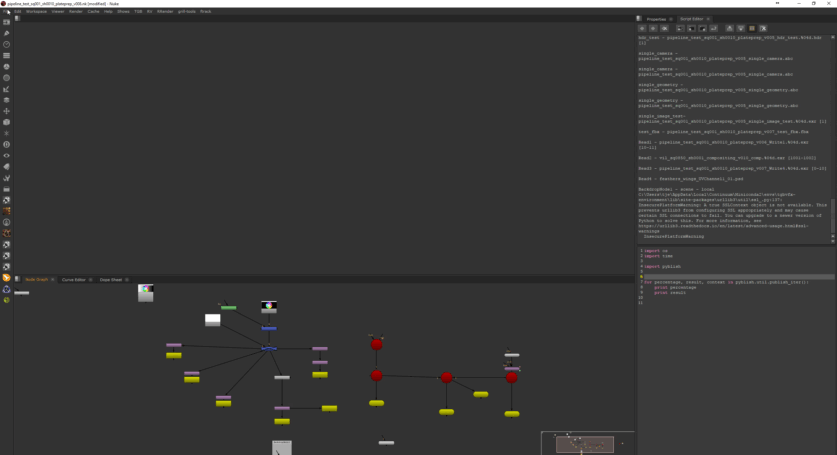I think for this to work, there will have to be some indicator progress. Otherwise you'd have no way of knowing whether it froze or just takes a really long time.
It'd be simple enough to do, we can convert util.publish into an iterator, and have it emit result dictionaries per plug-in. Then your splash gui could simply print the currently processed plug-in and perhaps overall status (errored, or all-clear).


This PR gives a built-in option for end-users to publish without any GUI.